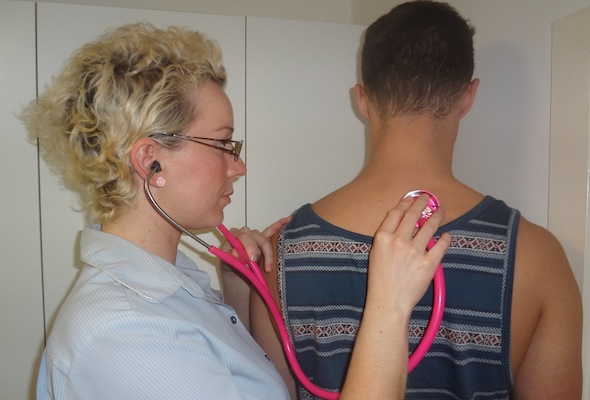
Fewer jobs for nurses
The current lack of vacancies in Australia’s professional work place is halting employment prospects for newly exited tertiary educated students.
Newly graduated nursing students are halted in Queensland’s nursing workplace due to inexperience.
Queensland universities have recently taken off the administrations cap on each department including health courses, as a result the future of the Australian healthcare system is being warned by the lack of vacancies but the need for more work.
According to The Planning Institute of Australia, the likelihood of future employment for skilled healthcare workers is low and expected to decrease further by 4 per cent by 2015.
This increase of university entrants means post-graduate job opportunities are not available and courses like nursing is producing skilled graduates with no employment prospects.
According to the Department of Education, Employment and Workplace Relations (DEEWR) registered nurses are among one of the most unrealistic health professions for permanent employment.
The DEEWR stated that in 2011, only 54 out of 166 hospitals in Queensland provided graduate positions in hospitals within the state.
Registered nurse, Paula Raywood, is currently looking for work after leaving the Vision Eye Institute at River City Hospital, and is now struggling on a part-time nursing position at various hospitals.
“I left my last job because the money and hours were bad … nurses are not treated fairly and if you don’t have experience you are left with the bad duties … after a while I had to leave because older nurses filled my position,” she said.
According to the July 2012 Seek Employment Report, nursing vacancies are in the top five most occupations sought after and in demand.
However, Beth Mohle, Secretary for The Queensland Nursing Union stated in the 2012-2013 State Budget Recommendation that there was definitely a shortage and it could be worse than expected, especially when Queensland Health continues to deny new graduates work in nursing.
“For some years, Queensland Health has failed to employ the full quota of nurses needed in accordance to those graduated” she said. “This is an imperative with thousands of new beds coming on line; we need to have a workforce ready.”
According to the Australian Government Department of Education, Employment and Workforce Relations Report 2011-2012, the health care and social assistance industry has seen growth with more than 1.3 million non-graduate workers.
Accounting for 11.9 per cent of the state’s healthcare working industries, according to the Australian Bureau of Statistics, the problem lies with the skilled occupations being filled. Occupied professional healthcare workers have decreased from 58 per cent in 2009, to 56 per cent in 2010.
According to a PR representative for QTAC administrations office: “Australia is working towards a higher experienced generation of health care professionals … universities now determine how many students they can manage.”
Susan Kellett, Manager of the graduate eCohort Study Programme conducted at the University of Queensland said “About 18 months ago, all nursing graduates were guaranteed a position, some with two or three job offers … within the last 18 months however, positions have dried up and graduates are no longer obtaining a 100 per cent employment standard, it would now stand at about 60 per cent.”
“Traditionally nurses would go into ward work, this would prepare for specialist nursing areas, however ward work is now becoming competitive,” she said.
When asked why the occurrence of such a lack of employment, Ms. Kellett replied: “The GFC has been a contributor, I know a lot of retired nurses who came back to work and part time employees who sought more hours, therefore employment is now given to the experienced.”
“The Campbell Newman cutbacks which started around the same time … is also a contributor,” she said.
In efforts to gain placement for medical student graduates Natalie Colson, geneticist and head of molecular and human genetics at Griffith University, Southport stated: “The Griffith University offers programs and pathways for graduates after completion of their degree … as for entry, the average OP cut-off this year for medical courses was a seven so places are limited,” she said.
However, the DEEWR report suggests that newly graduated medical students, in particular nurses, are unsuitable to employers due to inexperience, low specialist practical experience or are unqualified for registration with the Australian Health Practitioner Regulation Agency.
The nursing profession is ageing and concerns about skill shortages are worsening as large numbers begin to retire. Newly registered nurses have to work part-time, causing negative implications in staffing of hospitals.
In June, The Border Mail reported that Professor Andrew Vann, Vice-Chancellor of Charles Stuart University, commented that “Australian communities need for 1800 health specialists and 2500 more by 2025”.
